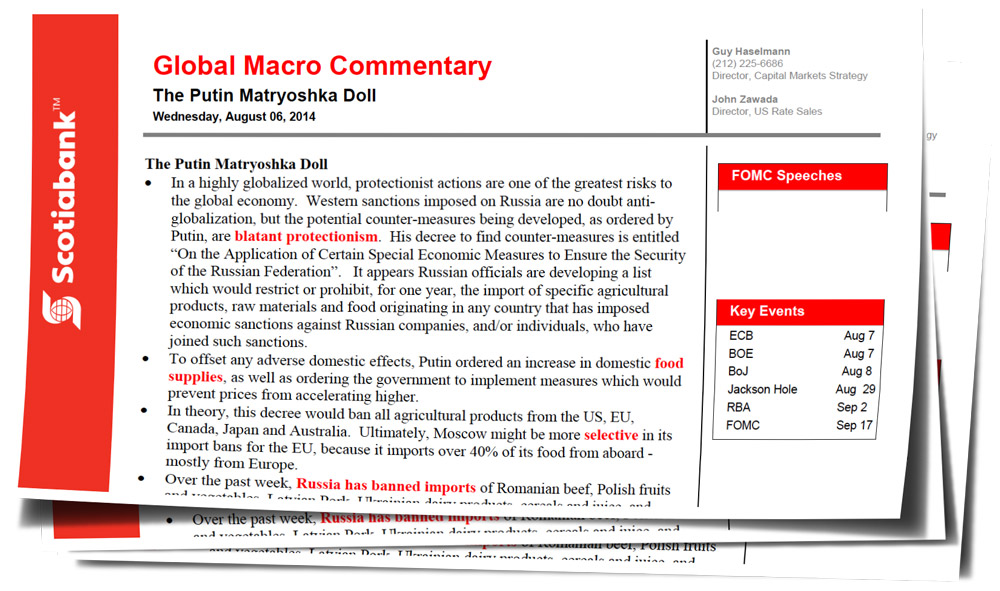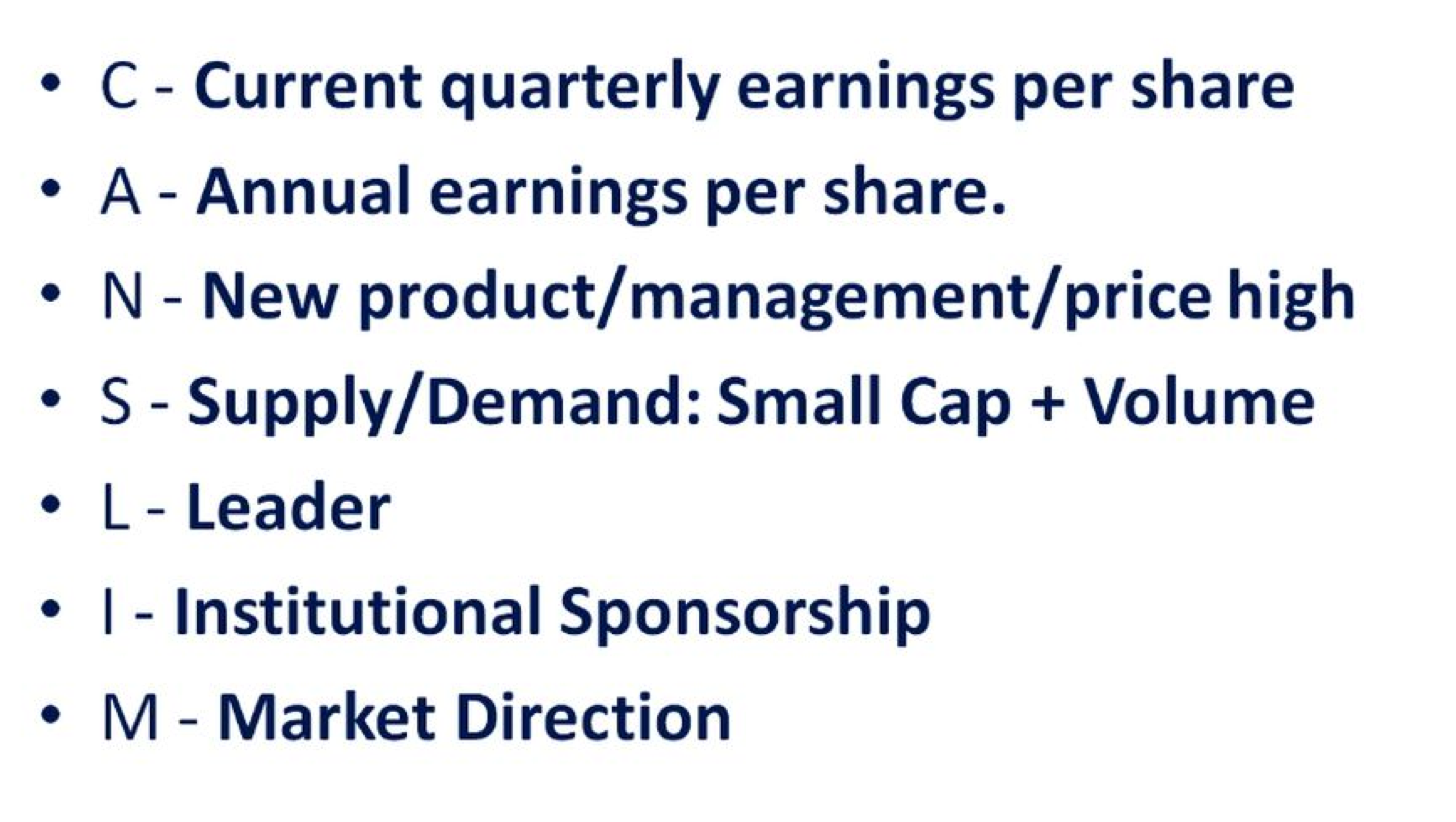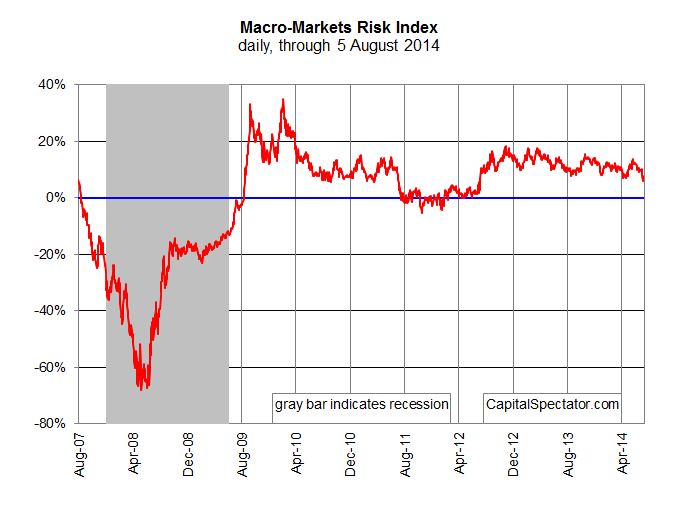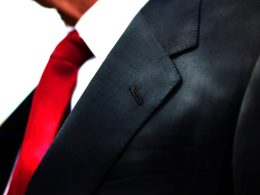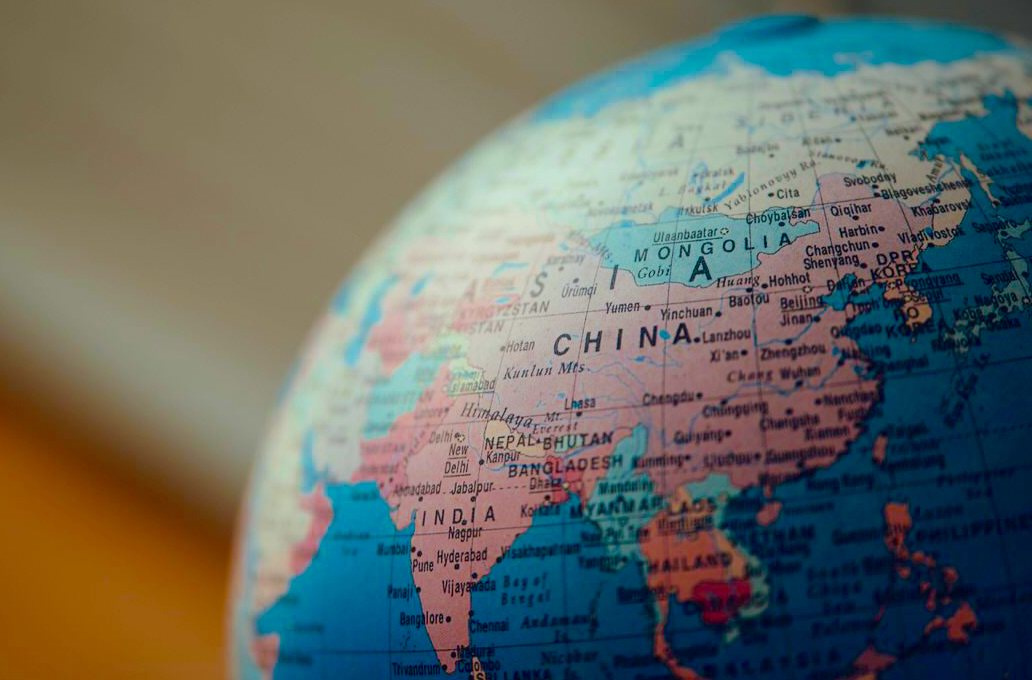The Putin Matryoshka Doll
by Guy Haselmann, Director, Capital Markets Strategy, Scotiabank GBM
· In a highly globalized world, protectionist actions are one of the greatest risks to the global economy. Western sanctions imposed on Russia are no doubt anti-globalization, but the potential counter-measures being developed, as ordered by Putin, are blatant protectionism. His decree to find counter-measures is entitled “On the Application of Certain Special Economic Measures to Ensure the Security of the Russian Federation”. It appears Russian officials are developing a list which would restrict or prohibit, for one year, the import of specific agricultural products, raw materials and food originating in any country that has imposed economic sanctions against Russian companies, and/or individuals, who have joined such sanctions.
· To offset any adverse domestic effects, Putin ordered an increase in domestic food supplies, as well as ordering the government to implement measures which would prevent prices from accelerating higher.
· In theory, this decree would ban all agricultural products from the US, EU, Canada, Japan and Australia. Ultimately, Moscow might be more selective in its import bans for the EU, because it imports over 40% of its food from aboard - mostly from Europe.
· Over the past week, Russia has banned imports of Romanian beef, Polish fruits and vegetables, Latvian Pork, Ukrainian dairy products, cereals and juice, and Moldovan apples, all under the pretext of food safety. Shipments of American frozen shrimp have been turned back and US poultry imports are threatened.
· In what could be an even more significant measure, a front page article in the Financial Times reports that Moscow is considering banning western flights into Russian airspace. Currently, European airlines headed to much of Asia crosses Russian territory. Disallowing trans-Siberian routes would cost airlines at least $30,000 in fuel per flight and add many travel hours via the added travel distance of up to 2400 miles. Airlines stocks were punished the past two days.
· After Russia annexed Crimea and even after Russia tinkered in Eastern Ukraine, Europe was reluctant to follow the US, UK, and Polish hawks seeking sanctions. Angela Merkel (and the sentiment of the German public) played the crucial role and mostly sided with the doves in France, Italy and Spain. However, as Der Spiegel stated: “The wreckage of MH17 is also the wreckage of diplomacy”. The MH17 disaster was shocking to the Germans (and the rest of the world) and shifted sentiment against Russia. Sentiment shifted even further when pro-Russian separatists failed to protect the dead and even robbed the victims.
· NATO meets next month in Wales. They will discuss an action plan to boost readiness and how to best deploy forces for defense and deterrence. The alliance consists of 28 sovereign nations whose decisions are reached by consensus (talk about many chefs in the kitchen). It is an incredibly strong military alliance. However, during the past five years, NATO allies have on average cut defense spending by 20%, while Russia has increased its defense budget by 50% over the same period. The trend is troublesome and will have difficulty reversing in the near future given the magnitude of NATO countries’ collective indebtedness.
· “When everything is coming your way, you’re in the wrong lane.” – Steven Wright





